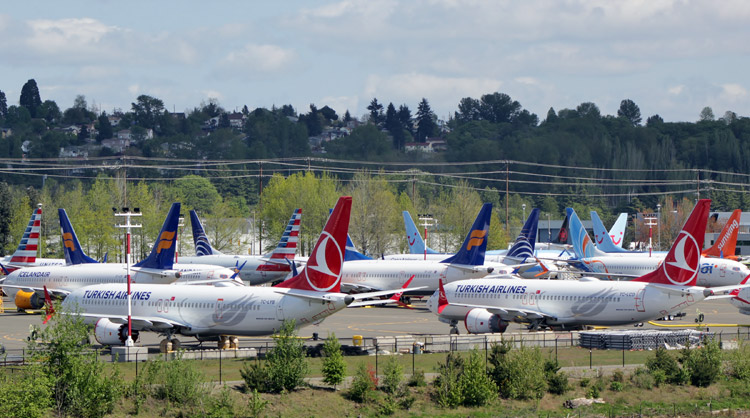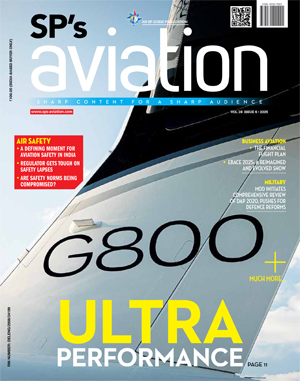INDIAN ARMED FORCES CHIEFS ON OUR RELENTLESS AND FOCUSED PUBLISHING EFFORTS

The insightful articles, inspiring narrations and analytical perspectives presented by the Editorial Team, establish an alluring connect with the reader. My compliments and best wishes to SP Guide Publications.

"Over the past 60 years, the growth of SP Guide Publications has mirrored the rising stature of Indian Navy. Its well-researched and informative magazines on Defence and Aerospace sector have served to shape an educated opinion of our military personnel, policy makers and the public alike. I wish SP's Publication team continued success, fair winds and following seas in all future endeavour!"

Since, its inception in 1964, SP Guide Publications has consistently demonstrated commitment to high-quality journalism in the aerospace and defence sectors, earning a well-deserved reputation as Asia's largest media house in this domain. I wish SP Guide Publications continued success in its pursuit of excellence.
- Prime Minister Modi Visits Punjab’s Adampur Air Base, Interacts with Airmen after Successful ‘Operation Sindoor’; Stern Message to Pakistan
- The layered Air Defence systems that worked superbly, the key element of Operation Sindoor
- Operation Sindoor | Day 2 DGMOs Briefing
- Operation Sindoor: Resolute yet Restrained
- India's Operation Sindoor Sends a Clear Message to Terror and the World – ‘ZERO TOLERANCE’
- Japan and India set forth a defence cooperation consultancy framework, talks on tank and jet engines
Boeing adds 3 safety elements to make the 737 Max fly again
Reworked MCAS put through 800 flight tests to validate airworthiness, India's DGCA briefed about modifications

Boeing has added three safety elements to its 737 Max Manoeuvering Characteristics Augmentation System (MCAS) in an effort to get certifications from aviation regulators across the world to get the grounded fleet to fly again.
India's Director-General of Civil Aviation (DGCA) is among the regulators briefed about the modifications.
This was announced by Darren Hulst, Boeing's Senior Managing Director Market Analysis & Sales Support (Commercial Airplanes), in New Delhi on November 6.
The MCAS software was blamed by investigators as the cause of two catastrophic Boeing 737 Max crashes which killed all 346 persons on board. The fleet was grounded in March this year following the second crash in five months.
While Boeing had targeted getting the fleet of 387 grounded 737 Max aircraft across the world to fly again by the end of this year, it is more likely that regulators across the world, including the USFAA, will take more time to certify the changes
While Boeing had targeted getting the fleet of 387 grounded 737 Max aircraft across the world to fly again by the end of this year, it is more likely that regulators across the world, including the USFAA, will take more time to certify the changes.
"Three additional layers of protection on the MCAS have been tested in 800 test flights. This is to add further redundancies as a safety measure," Hulst said after releasing Boeing's annual India Commercial Market Outlook.
"We have provided detailed information on the crashes and changes made on the plane to the DGCA. We've engaged with the DGCA at the seniormost levels," Salil Gupte, president of Boeing India, added.
India's SpiceJet has a fleet of 12 Boeing 737 Max jets.
"There's a process to get it back to service safely. The timing is up to regulators. We think it could be towards the end of this quarter. We're working the process," Hulst said.
The crashes of the Indonesian Lion Air Flight 610 on October 29, 2018 and the Ethiopian Airlnines Flight 302 on March 10, 2019 have been blamed on a rogue MCAS which is reported to have put the two ill-fated aircraft into an irreversible nosedive
"We've improved training process. We're working with the pilot community and operators for crew confidence. We want this to be transparent. The next step is certification," he added.
The fleet of 387 Boeing 737 Max aircraft used to fly 8,600 weekly sorties for 59 airlines before getting grounded.
The crashes of the Indonesian Lion Air Flight 610 on October 29, 2018 and the Ethiopian Airlnines Flight 302 on March 10, 2019 have been blamed on a rogue MCAS which is reported to have put the two ill-fated aircraft into an irreversible nosedive.
After the second crash, the US Congress and its Department of Transportation started investigations into the FAA certification. It was alleged that the FAA had delegated too much self-approval authority to Boeing.
The world's biggest aircraft manufacturer has been criticised for failing to train pilots adequately about the MCAS.
Following the grounding, Boeing halted deliveries and reduced production of the MAX. As of October 2019, the grounding cost Boeing up to $9.2 Billion in revenue and compensation to airlines and bereaved families.





